Golden week and golden light over Zhangjiajie
Hello everyone! 大家好!ערב טוב, Bonjour!
Just as in the month of אייר we celebrate יום העצמאות, in China a similar holiday is celebrated. It’s known as Huáng Jīn Zhōu [ 黄金周] and pretty much all of China gets the week off. There are massive celebrations in Beijing and a famous special is on TV that shows the parades. This year was particularly big as they celebrated 70 years since the start of this current era. Can you think about the similarities and differences between יום העצמאות and Huáng Jīn Zhōu [黄金周]?
Well for my Huáng Jīn Zhōu [黄金周] I knew I wanted to go on holiday but I didn’t know where. I was then told about the Avatar Mountains and that a group of scholars wanted to go there. I made them explain (having never seen Avatar) but was almost instantly convinced. It was thanks to the planning and Chinese magic of: Henry, Sammy, Francesca, and Esther that the trip was organised.
We set off from Tiān Jīn [天津] for a quick bullet train jaunt to Běi Jīng [北京] before strapping in for a 23 hour train to Zhāng Jiā Jiè [张家界]. Because we only found out about the holiday quite late the only seats left were hard seats, not sleepers (beds) but we were lucky to get seats! They also sold standing tickets for the journey so it wasn’t uncommon to see people file in and just stand in the carriages. It was a busy train but our stop wasn’t the only one so people came and left in waves.
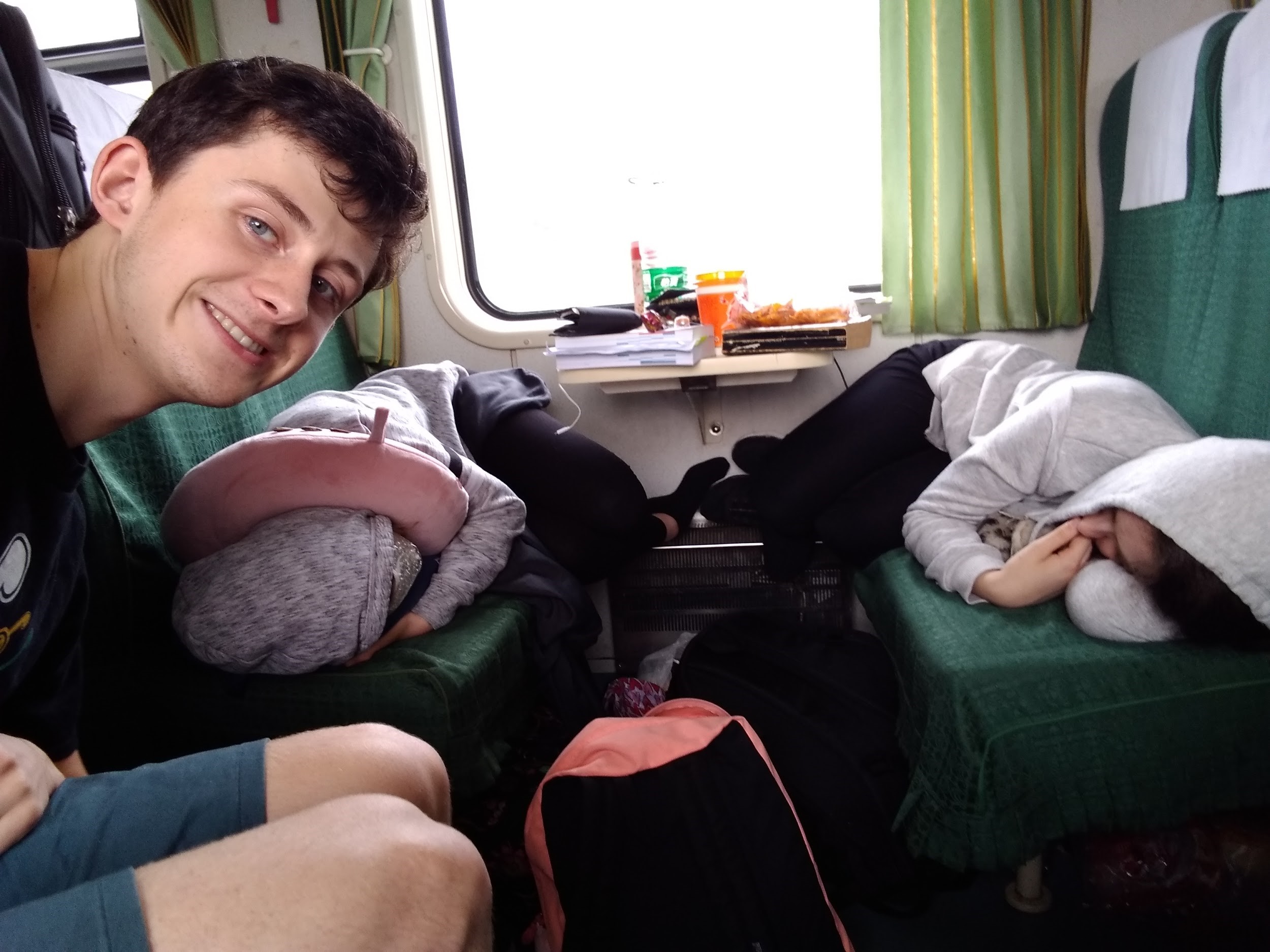
{ Henry, Maya, and Amy experiencing a 23 hour Chinese train journey }
After our journey we met our host at the train station before getting a bus to the accommodation. Despite knowing that our accommodation was actually inside the national park I was still awe-struck at the natural beauty all around it. To make it even better our lovely host took us all out to a natural waterfall where we could go swimming. The temperature of the water was baltic and took a lot of getting used to, but once I got used to the temperature, swimming and splashing around was really fun.
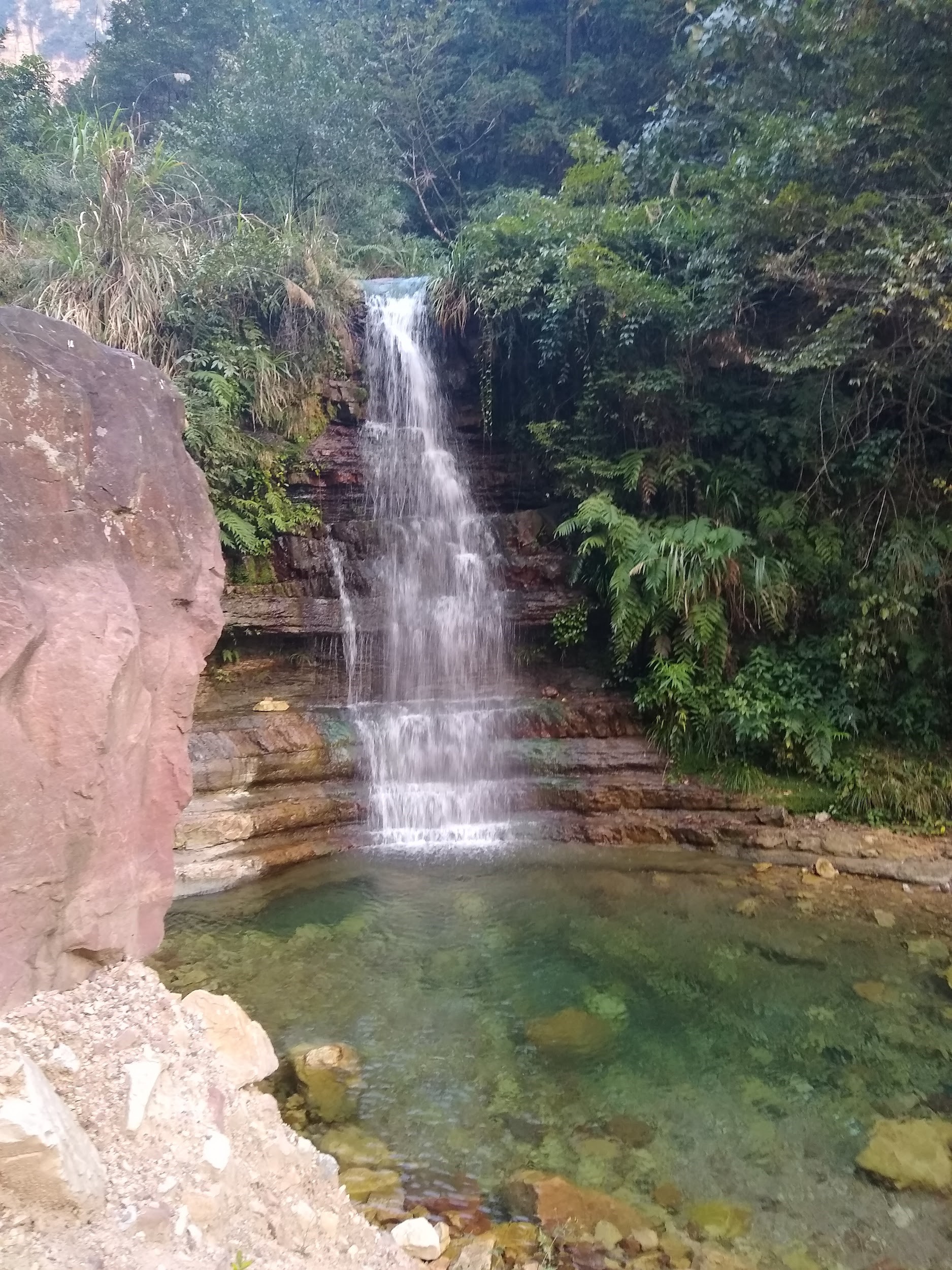
They also cooked for us, we weren’t at a hotel, and I still dream about their soup! It was delicious and I’d eat about 3 bowls of it every morning with Chinese Miàn Bāo [面包]. The next day we went to the Avatar and Bandit mountains and they were amazing. I’ve never seen scenery like that before in my life! They rose, seemingly out of nowhere, into impossibly tall and distinct peaks:
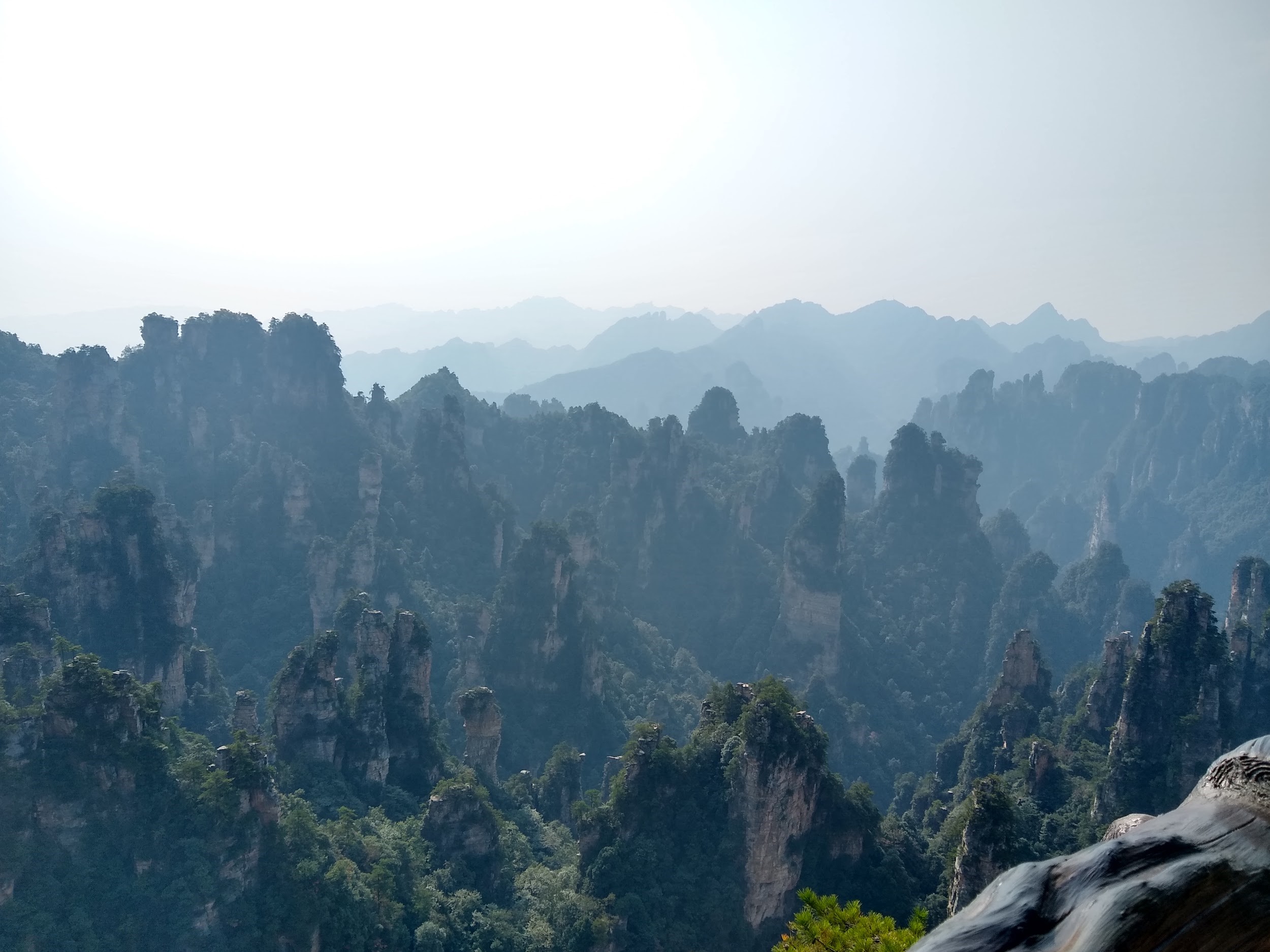
At the mountains we also got to see wild monkeys. The babies are cute but the adults are deceptively massive. They would just run along the paths that tourists would take and disappear up the trees only to reappear about a meter away!
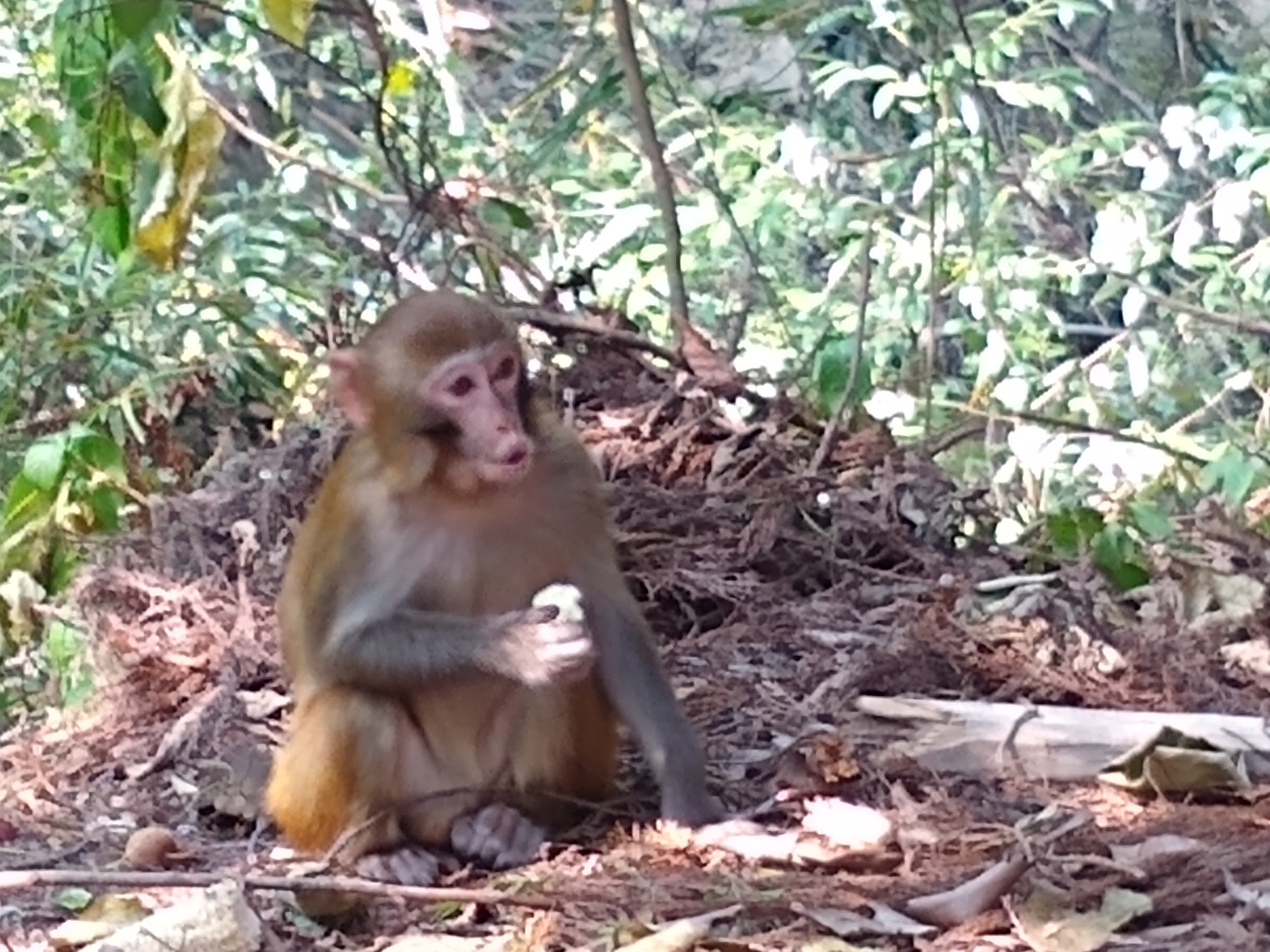
We also went to buy traditional clothes from a Tujia shop in the city of Zhāng Jiā Jiè [张家界]。 It was amazing to walk into the shop and see the different style of traditional clothing. It differs massively from other traditional styles of Chinese clothes.
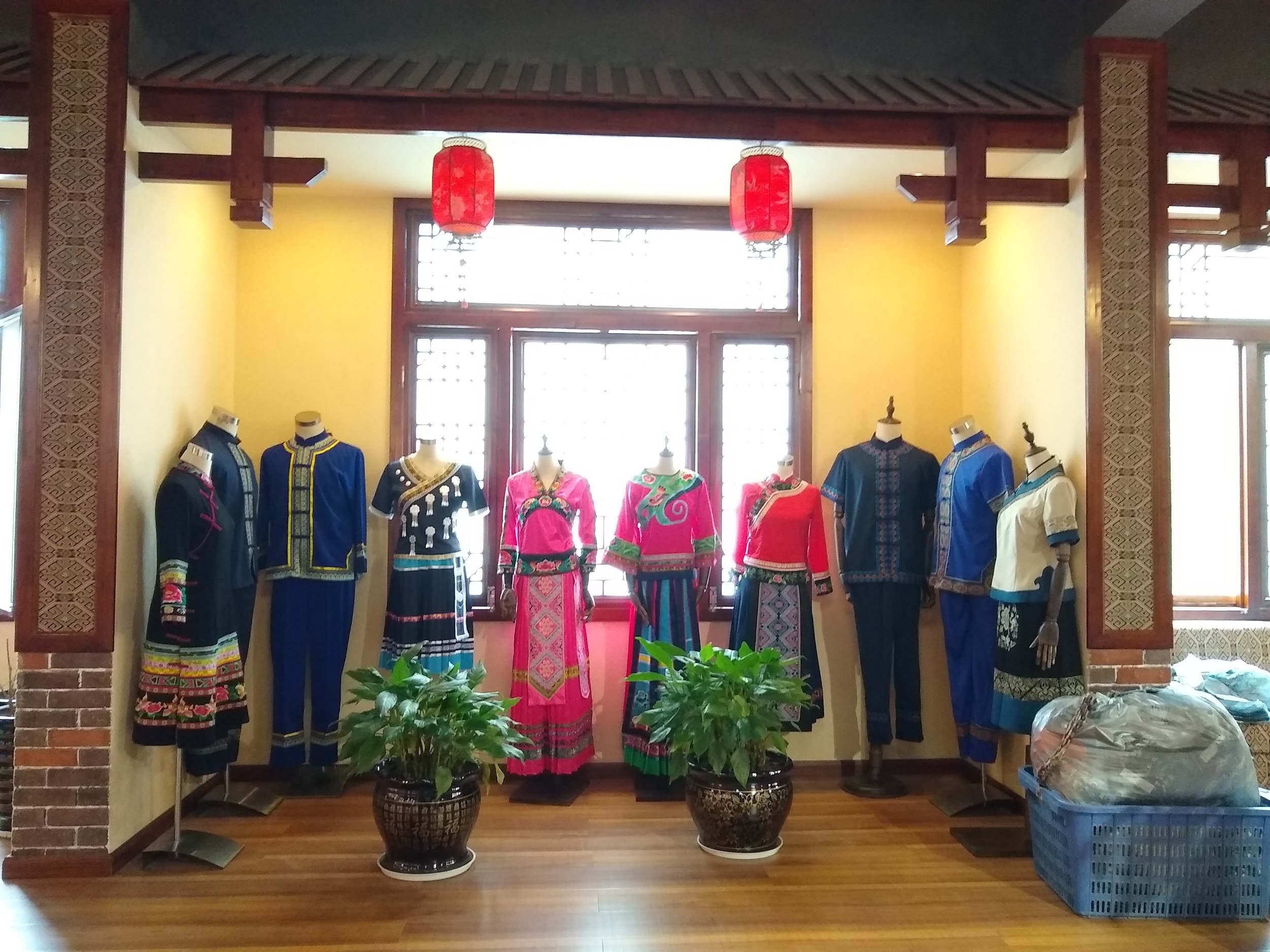
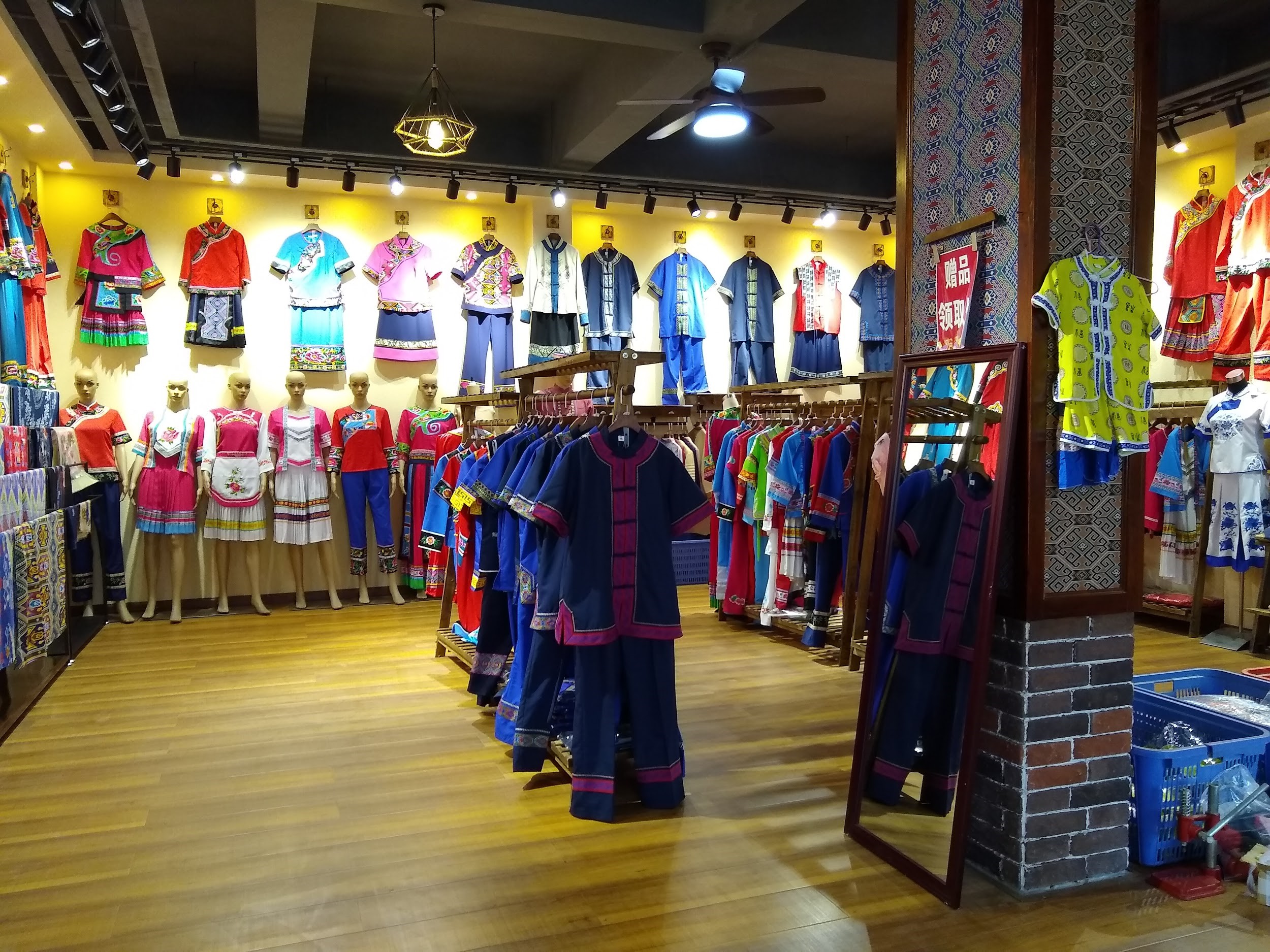
And last, but 100% not least, was our trip up Tianmenshan. This means Heaven’s gate mountain and it was stunning. We were there for several hours until the nothing and fog turns gradually from light grey to black.
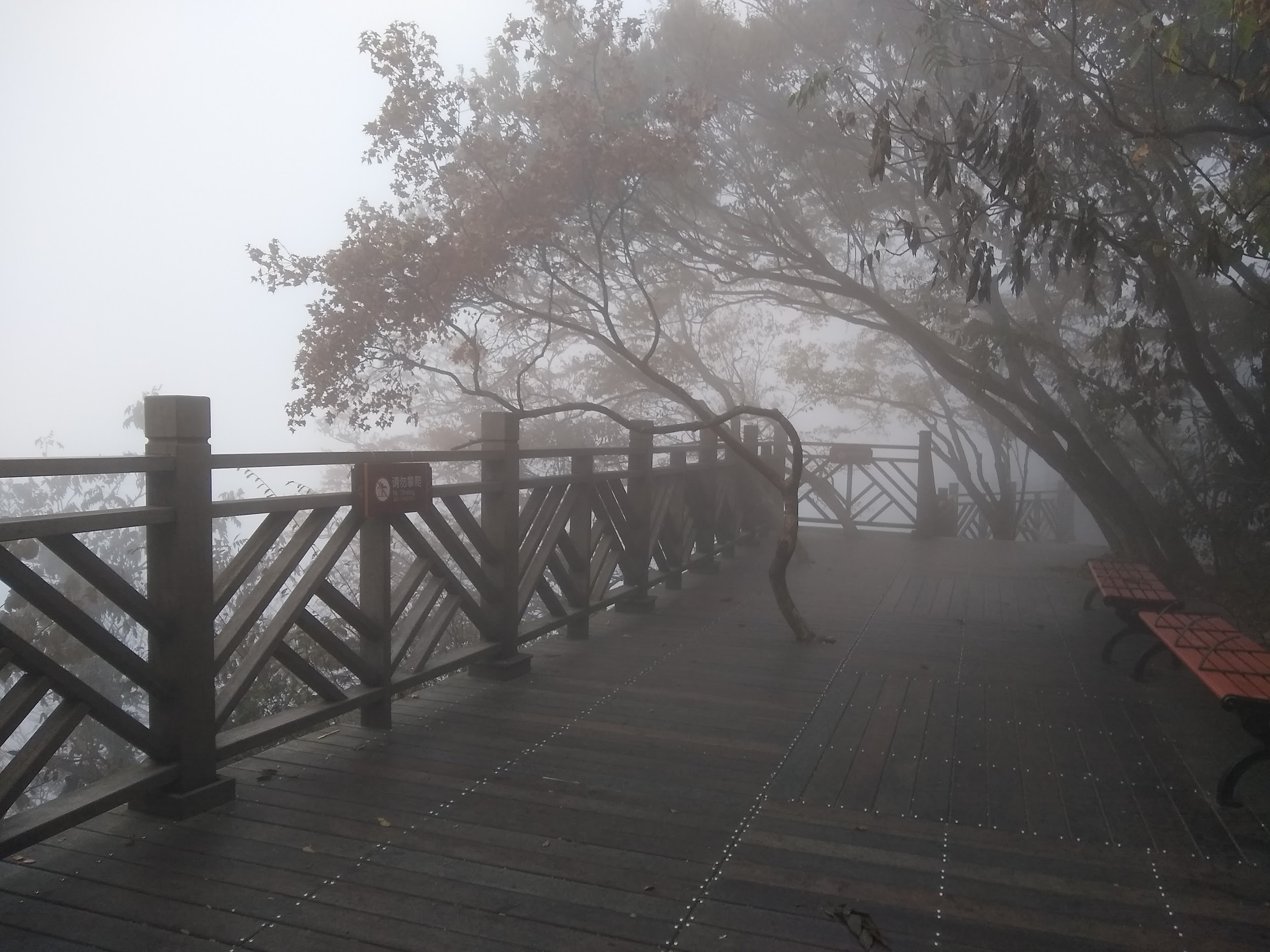
We genuinely couldn’t see past the fence you see there. Everything else was a world of fog and mist. It felt a little bit like being in a book. What kind of book do you think would be set there?
And last but not least I have a wee summary of my trip, if a picture says a thousand words then this video should not just say but explain why I loved my holiday!
1. Is life different in Tianjin?
Life is different in Tianjin than in Glasgow. Although I would say that the biggest differences are less to do with geographical location and more to do with the change from high school to university. The lessons are structured differently, I have a lot more free time and responsibility to decided, by myself, what to do with that time and what I do for fun has also changed. However I did manage to make it to an ice-rink and I've been enjoying my wee cycled oot and aboot the town. So somethings have remained consistent and others have changed.
2. Are you enjoying your university? What are you getting taught?
I am very much enjoying my university! I have 4 classes: [口语,汉字,听力,中华] kǒuyǔ, hànzì, tīng lì & zhōng huá. My favourite class is hànzì [[汉字]. This is because I can always understand what’s going on and it’s a nice easy thing to focus on. However, that class is also one of the hardest because we have to learn all the characters and their stroke order for mini class tests. I also have extra curricular classes of intensive HSK 4 and shūfǎ [书法]。I love shūfǎ [书法] because it’s so relaxing and satisfying once you can make it look pretty. The teacher is also lovely and is really nice when they see my first attempt! We had to buy special tools for that class, including a wonderful little bowl that doubles as an ink bowl and brush holder.
3. Do you ever miss being in Glasgow?
Sometimes! It's changing seasons over in Tianjin so when it's particularly smoggy and drecht I miss Glasgow
4. What is the food like?
It varies massively. A current favourite dish of mine is Tǔ Dòu Ròu Sī Fàn [土豆肉丝饭] (Shredded potato and meat on rice). It's amazing and very cheap as well! I have a few favourite restaurants that I visit often and I tend to like the sweeter and saltier dishes. It's quite unlike most Chinese food in Glasgow. The closest, I would say, has been the [炒面] (Chǎo Miàn [Chow Mein]).
5. Are you missing your mum and dad?
Of course! And also my sister, my cousins,and my aunts and my uncles. However, I'd say I'm missing my puppy the most! I'm upset that I won't get to see him grow up into a floofier dog. But jokes aside, I miss them dearly. Yet, because we use WeChat, it's easy to keep in touch and we can video call each other.
6. Where would you like to go and visit in Tianjin?
That’s a brilliant question! There are many famous sights in Tianjin - some I saw when I was in China last year, and some I’ve seen this year. This year I went with some friends to Goubuli a famous restaurant in Tianjin that is over 100 years old. It was super fancy! Goubuli steamed buns are famous all over China. I can see the Tianjin tower from my bedroom window and I’ve passed by the Tianjin eye a few times but I’d like to explore closer. I’d also like to go back to the water park (it’s more of a park with a lake than a theme park) in the winter time as I feel like that would be a lovely trip. Top of the list though, I’d say, is Tianjin Binhai Library. It’s very famous and pretty and I would love to spend the day in there (and maybe even get some studying done)!
7. Have you seen any famous landmarks yet?
As answered above, I've seen Zhangjiajie and the avatar mountains and the Tianjin tower. I’m working to plan my new holiday to see more but because the public transport system is so good I can visit another city for a wee weekend sightsee. Beijing and Dandong are on the weekend trip list. I went to Beijing last year and saw many famous sights like: the Forbidden Palace, Tiananmen Square, the Great Wall, and the Temple of Heaven. I’d still like to go back and revisit all of those sights!
8. Is it difficult to understand your teacher?
It was very difficult at first. They only spoke Mandarin from the beginning, only occasionally adding in a singular English word to clarify. Although as time passes it's becoming easier to understand them. They speak clearly for us students, however the pace is quite rapid so it does take getting used to. One of the best ways to improve your listening practice is by watching Chinese TV so I’ve been watching quite a few pilot episodes in order to find a TV show I like!
9. What is the population of Tianjin?
15,621,200! Tianjin is the 4th largest city in China. For comparison that’s roughly:
- 26 times the population of Glasgow
- 2 times the population of Israel
- 3 times the population of Scotland
- 1/3 of the population of Spain
- 1/4 of the population of the entire UK
Oddly enough, it is twinned with the 4th largest city in Israel [רִאשׁוֹן לְצִיּוֹן] , although Tianjin is just over 62 times bigger!
10. Have you made new friends?
Yes! I have made loads from all over the world. My friends from the Congo and Sudan have been trying (and failing through no fault of their own) to teach me how to dance, my Kyrgyz and Russian friends have been amused for the past few weeks by my attempts at speaking Russian, I discuss missing pierogi with my Polish friends, and I got to watch my Indian friend do the most beautiful and intricate henna. I’ve been bonding over love for Korean music and movies with my Korean friends. It’s been good to find other people who share my love for EXO!
11. Is the work hard?
It depends, unfortunately I've been finding it hard to speak without my Scottish accent. However my Chinese has improved and my English has deteriorated so much that I now consider myself, foremost, as a Chinglish speaker! I find the grammar hard to pick up sometimes however I can cross-reference whatever I learnt that day to a Chinese grammar book I bought, and my textbooks to make sure I'm understanding fully. Chinese is a very logical language but it's still hard to learn Chinese grammar because they don't really have tenses. It can make it hard to know how to structure a sentence if it's not happening in the present.
12. Are there any similarities or differences between Scotland and China?
There are, although it's far from the binary 1s and 0s that you may be imagining. It was surprisingly easy to get to grips with life in China and I adjusted quickly. I pretty much never carry cash on me as now I can just scan QR codes to pay for anything (including hiring bikes). The road laws are different which took a wee bit of getting used to although I now cross the road without fear and with confidence that would scare my mother. However I still can’t force myself to yell for the waiter’s attention in cafes and restaurants. That’s still a work in progress!
I’m hoping you guys also had a lovely set of holidays and that the coming winter isn’t too harsh.
Goodbye, 再见, לְהִתְרָאוֹת, and adieu!
Today’s Dictionary:
Huáng Jīn Zhōu [ 黄金周] = Golden Week
Tiān Jīn [天津] = Tianjin
Běi Jīng [北京] = Beijing
Zhāng Jiā Jiè [张家界] = Zhangjiajie
Miàn Bāo [面包] = Steamed bread-like rolls
Kǒuyǔ [口语] = Speaking class
Hànzì [汉字] = Writing characters class
Tīng lì [听力] = Listening class
Zhōng huá [中华] = Comprehensive Chinese class